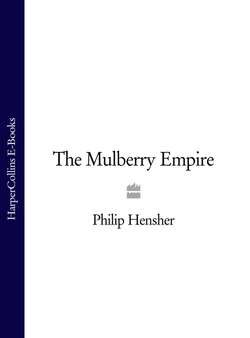Читать книгу The Mulberry Empire - Philip Hensher - Страница 20
3.
ОглавлениеFor the moment, the hero of the hour suspects none of this. Burnes is dressing, in as leisurely a fashion as he can manage. Here, in the dressing room of the house he has taken for the Season, he would not think that his time in the stage lights is drawing to a close. If he thinks anything, he probably considers that he is entering on the first stages of a vertiginous ascent. By now, he is intimate with people he barely dared to notice a few months ago; he finds, with a regret that does him credit, that he no longer has much time for those who introduced him to all those salons, before Christmas; he finds, with a malicious pleasure which quite surprises him, that the Montrose neighbours who snubbed his father twenty years ago now queue to drop their cards in the silver filigree bowl in the hall; they, those Montrose neighbours, have been turned in his eyes into what everyone laughs at, a set of nabob Scotch with raw-skinned ambitious wives. Burnes is decent to everyone, because that is his way. He has started to be noticed by the great – by Dukes – by Royalty, even, once; and, surely, the time will come when the brief notice, the honour graciously conferred in crowded rooms, turns into intimacy, and he finds himself a welcome visitor at every house in town. Perhaps not this year, because the Season is drawing to its brilliant close; but next year. Yes, perhaps next year.
His fingers have slowed, stopped. He stretches out his hand, and Charles hands him the next item in the ritual, in silent deference. For one moment, as he ties the elaborate knot, it occurs to him that he and his valet must be the same age. He looks, critically, in the glass at the final result. He has dined out twenty-one times already this month, and told his story twenty-one times. He looks, critically, at himself in the glass and prepares to go out, to tell it once more. What he sees in the glass is what you expect to see, of the hero of the minute, or more or less so. Not so brown as he was, not so thin as he was. He has been taken in from the heat and dust and wind, and left to pale and fatten on an unaccustomed diet; a diet of drawing rooms, and lobsters and champagne; of morning walks in the Park with no exercise more strenuous than the three-inch raising of the hat; of the ceaseless attentions of the most accomplished young ladies the metropolis can supply wholesale. That the accomplishments of the young ladies run no further than the performance of half a dozen Irish airs on harp or pianoforte hardly troubles Burnes. If he wants other, bolder accomplishments than the ones fashionable London permits of its women, he knows by now where to find them. Under the softening regime, he is quite altered from the man of six months ago; no longer dark and lined and meatless as a piece of old leather that has lain out in the tropical sun for years on end, but pale and soft. He looks at his own veal-face, there in the glass. Only his hard hands betray the fact that he has led quite a different life from his eager listeners; only the bright light in his dark eyes shows that he has seen things they will never see, or wish to.
Charles pauses in his ministrations, looks inquiringly at Burnes in the glass. Burnes becomes aware that the valet said something.
‘Yes, Charles?’ he says.
‘My lady Woodcourt’s, sir?’ Charles repeats.
‘Yes,’ Burnes says. ‘Yes, alas.’
‘Lady Woodcourt,’ Charles says, managing to sound both approving of Burnes’s destination this evening and, shaking his head, disapproving of his master’s irreverent tone. Burnes hardly minds; by now, he can afford, he believes, to appear unconcerned by even the most alarming invitation. And who is Lady Woodcourt, after all? A wicked old woman who has lifted her skirts for two kings and who knows how many prime ministers, whose whoring days ought to be over by now. Lady Woodcourt, indeed; a woman he knew nothing of six months ago. Charles takes the brushes and applies them to Burnes’s head, the dressing now almost complete. ‘May I ask—’ he continues.
‘No,’ Burnes says. ‘No, this will be all. I shan’t be needing you again tonight, thank you.’ He has always been good with his men, and, as Charles takes the clothes brush to wipe away the flakes of scurf on the waistcoat, he grins at him. Charles nods, demurely, and finally helps Burnes on with his immaculately shining black coat.
